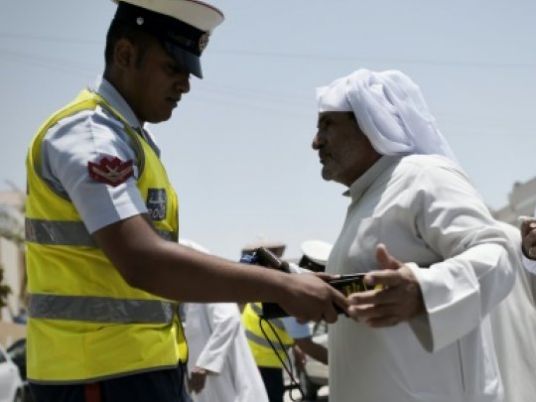Four men arrested during clashes between police and protesters on 28 June described their treatment inside the Hike Step military prison from which they were recently released at a press conference on Thursday.
All four were arrested by riot police in Tahrir Square at around 9 am. One of the men, a journalist named Hussein Mourad, was filming in Tahrir Square when he says he was attacked by riot police and dragged 500 meters to a police van. He was kept there until almost 7 pm that night.
Both Mourad and Mahmoud Abdel Aziz Amr, who was arrested at the same time, described seeing detainees “dripping blood” after being assaulted by riot police. None of them were offered medical attention for their injuries, they said.
Amr said that he and other defendants were given “no chance to defend themselves” during court hearings and that judges treated them with contempt.
“The trial of civilians inside military courts is a travesty. We didn’t do this revolution to have civilians tried in military courts and officers tried in civilian courts," Amr said.
The group was eventually taken to the military prison in the Hike Step area. Mourad was released four days later after his employer interceded on his behalf, but the other three men remained incarcerated for almost two months until Wednesday, when they were cleared of all the charges against them.
“We saw both good and bad inside the prison. The good was that some people there appreciated and respected that we have a cause. The bad was the treatment we received by some of the junior soldiers – not the senior officers,” Amr said. “Some of the soldiers were unfit to wear a military uniform. They should be in the place of the prisoners.”
Mohamed Abdel Hamid, who was also released Wednesday, described the impossibility of complaining about the conditions inside the prison, since the prisoners had no access to officials with which they could lodge complaints.
The prison soldiers also made launching hunger strikes impossible, he said, by “deliberately throwing food on the floor and then saying, 'Now show me how you‘re going to prove that you haven’t eaten.'"
Computer engineer Mohamed Adel described being beaten after requesting water to perform ablutions before praying, explaining that water was only provided at certain times during the day.
Adel recalled that in one instance, he was refused water, and after asking again, a soldier pushed him inside his cell and slapped him. When Adel grasped the hand of an officer who arrived at the scene in order to stop the soldier from hitting Adel, other soldiers joined in the assault.
Conditions inside the Hike Step military prison were briefly thrown into the spotlight on Monday, when inmates staged a protest.
Adel was in the prison when the protest started, and said that it was sparked by the handcuffing and detention of four female visitors who were attempting to smuggle drugs into the prison. An inmate and relative of one of the women responded by slashing his own body with the lid of a tuna can, Adel said.
He added that on the same day, a military officer shook up the prison arrangement, placing in each cell 15 men, though they were only designed to hold a maximum of seven prisoners.
Later that same afternoon, Adel said military soldiers went into the prison mosque without removing their boots and told prisoners to leave. Inmates in one cell were told to come out and lie face-down on the ground, after which soldiers walked on top of them, he added. He also said that food brought to them by their families during visits was thrown away.
The protest began at around 7 pm, in a wing that houses about 700 prisoners. Some of them burnt blankets, converged on the prison’s central area, and threw stones at soldiers.
“Soldiers who were trapped on the wing with us took their uniforms off and we protected them,” Adel says.
The situation was eventually resolved following the intervention of military officers who also happen to be prisoners – they are currently imprisoned due to joining protesters in Tahrir on 9 April, Adel says.
Ragia Omran, a lawyer from the No Military Trials for Civilians group that organized the conference, said that there are “indications” that military prosecutors will in the future refer civilian cases to public prosecution, and that “defendants currently being tried will be cleared or receive a light sentence."
Rights groups estimate that between 10,000 and 12,000 civilians have been tried in military courts since February.



